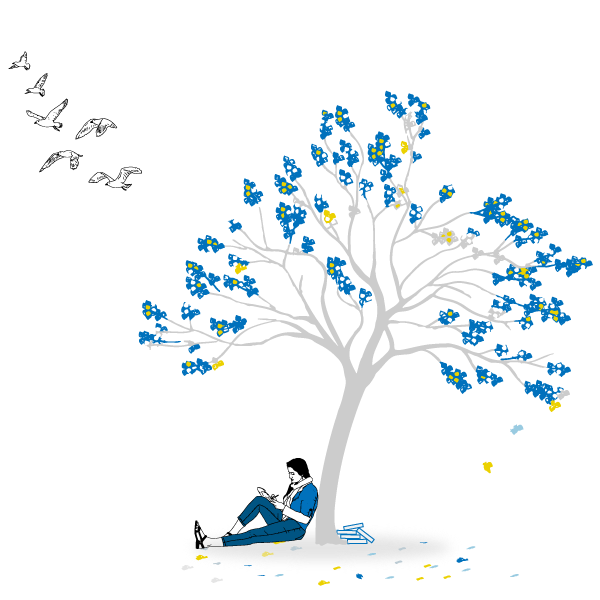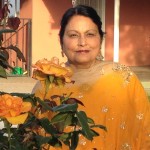“How the heck does one become radicalized?”
December 6th, 2015.
Note for former students I have taught: I know (and appreciate) that some of you read everything I write. I want to let you know that there are some things in this post that might be too complex for you to understand. I have never censored complicated topics from any of you before, no matter your age, and I have always encouraged questions. It’s okay if you don’t understand everything I have written.
My mother says I should write something. I tell her there are many others who have already written something on this topic and written it well and their voice carries a lot farther than mine. Farther is important right now, I tell her.
She is convinced that somehow my voice is stronger.
“Their voice may get 15,000 page hits. Your voice changes people. Your voice is not an alternative opinion. Your voice illuminates.”
The power of a mother’s love: the perpetual audacity to see her child as unique.
“No,” she says, “That’s not why. Every voice counts right now. Every.”
So, I am writing for her.
This is for you, mama.
My mother says I should write something about “this mess.”
This “mess” would be the acts of terrorism in San Bernardino, California.
“I am so relieved the ‘face of confusion and self-hate’ is available to all,” my mother said the other day.
The “face of confusion and self-hate” is the photo of the female wearing the hijab who was one of the terrorists.
“This ought to give every hijabi a pause,” she adds sadly.
This sounds judgmental. It’s not.
For the majority of Pakistani people, especially those live in Pakistan, Pakistani women wearing the “hijab” is odd.
In Pakistan most women don’t wear the hijab. Some women wear something called a “dupatta”, a colorful light veil, and that too, seldom over their heads. It usually stays around one shoulder or both, depending on the style and comfort level. The women who do wear a full burka (the beekeeper suit where only your eyes show) are considered “paindoos”—which translates to uneducated, illiterate, villagers. This is not my opinion but a general understanding. The “hijab”, the headscarf, is a Middle Eastern, Iranian, Turkish accessory, with the exception of Saudi Arabia where women are forced to wear something called an abaya, the same as the beekeeper suit.
Moreover, any reference in the Quran to “cover yourself” is for the benefit of women, not just in those times, but even today in our current times, where women have to protect themselves from the perversions of men in very patriarchal countries where they get molested and raped if they show “too much of themselves.”
This is clearly not necessary in Western countries. In fact, in Western countries, it has quite the opposite effect: it draws attention to oneself as opposed to deflecting attention. Moreover, many of the women who do cover their heads, their make-up is impeccable and alluring to the point of leaving one mesmerized. This is especially true if you have an attractive well-proportioned face with good skin: there is no visible hair and all you see is the perfection that is your face. Quite the opposite of humility.
When I was in Morocco in 2006, I was surprised to learn why some women there wore the hijab and some didn’t.
“I cover my head when my hair is not washed.”
“I cover my head on the way to the hamam.” The hamam is the place of communal bathing, segregated by gender, akin to a spa without the bells and whistles; there are fancy ones for tourists and then there are the real ones for the locals. By the way, to this day, the cleanest I have ever felt was after bathing in a local hamam in Morocco.
“I wear it for style, like the French.”
“I wear it because I am an old granny. It gets you respect.”
Not one woman there told me that it was in the name of being a Muslim.
Yet, in the United States of America, women from South East Asia, Pakistan included, cover their heads as if they are Middle Eastern.
Honestly, I wouldn’t have anything to say about this, if they were indeed following some stupid trend, like Madonna putting in “mouth grillz” or the “Rachel Dolezal” complex but these women are doing it because they believe it makes them a “better Muslim.”
Part of the reason I have not written anything on this topic is because I don’t identify myself as a Muslim. If you are interested in alternative Muslim-American perspectives, here are links to read: “Bad Muslim?” “Sex and Islam Do Mix, But Not In America.” and on this highly visited blog, you will find many Muslims voicing their clarity through their confusion. Here is an excellent analysis on YouTube of Radical Muslims, Fundamentalist Muslims, and Moderate Muslims.
This is not to say I was not brought up with values of the Quran. I am lucky because my father is a scholar of Arabic—many of the people preaching Islam can pronounce the Arabic words but do not know what they mean—and in addition to the Quran, deeply familiar with the Bible and the Torah. I grew up in a home with literature from every country and perspective.
While growing up in NYC, my first best friend, Hila Bakal, was Jewish. We didn’t know any differences. We liked Paula Abdul, reading and jokes. One Saturday we were supposed to hang out but she had to go to the Synagogue first. Our parents’ schedules allowed the dropping-off-and-picking-up routine only if I initially went to the Synagogue with her and then to the park near her home. I recall asking my father, later in the week, as a 12-year-old, “Do you think it is okay for me to go to a Synagogue?”
“Why wouldn’t it be?”
“Well, it’s a Jewish place.”
“So?” he replied.
“Well, I didn’t think we were Jewish. I thought everyone goes to their respective place of worship depending on what religion they are. No?”
“You can’t be a good Muslim if you aren’t a good Jew or a good Christian,” he replied.
This confused me. “But we don’t even go to a Mosque!”
“Yes, I have kept you all safe from the mosques this long and I continue to keep doing that.”
Hila and I never discussed religion because it was a non-issue. Growing up in Stuyvesant Town in New York City, most of my friends were Jewish. The differences among them were many. I had another friend whose name I forget now who was Jewish but an immigrant from Russia. I had another friend who was Catholic from Romania. Her family was a very different type of Catholic than our other friend who was also Catholic but from Greece.
That is the New York I grew up in, that’s what America was to me. It wasn’t just “diverse”; it was politically incorrect and we figured out how to get along despite it. I didn’t have any Pakistani friends because they were all very confused about being Muslim or Pakistani. I was too young to know why other than that I didn’t have anything in common with them. I was “allowed” to have crushes on boys, have photos of New Kidz on the Block and Boys II Men on my walls (this fact has to be admitted at some point!). These were things the Muslim girls weren’t allowed and you weren’t allowed to talk to boys and I liked engaging in debates with boys to show them girls were smarter. I was 12 and there was no PC police back then.
Once again, when I would ask my parents, were we really Muslim, their answer was, “There is something wrong with their parents. Don’t worry about it.”
As I grew up and went through high school in Kansas City, I encountered other Muslims who came from very wealthy families, and they considered themselves to be “modern Muslims”—meaning, they engaged in drinking, having sex, listening to hip hop, pretending to be either white or black. My best friend in high school (we are still the closest of friends) was black and yet I never thought I was black nor did we ever confuse our issues with the others’ while growing up in a very white suburban part of Kansas. Most importantly, both of us also had white friends. No cultural issues came up because both my black and white friends had curfews, couldn’t date, and we all thought our parents were trying to imprison us. Essentially, we were all kids who had parents who worried about us.
So, right at the time, when a second/first-generation person is naturally confused and decides to “turn to hijab” or “religion” (no different than anyone who decides to become a born-again Christian), I once again inquired, “If we are not like those Muslims who go to Islamic Centers and Mosques and we are not like those Muslims who can engage in promiscuous behaviors, then who are we?”
“We are Americans,” my father replied. “We are Americans.”
This meant we explored religion. My brother Zain and I explored being an atheist to Buddhist to various aspects of Christianity to questioning everything Islam had to offer. We questioned dogma, authority, institutions, our parents, without fear of political or religious persecution which my father had endured majority of his life.
This is what being an American means: you value freedom, yours and others. You disagree with your government and have the option to run yourself. (I understand things are very different in the United States now given corporations are governing everything, from judicial branches to legislature to Congress to education but there are still enough of us who remember how America used to be).
So, how do you become radicalized? It’s done in the name of becoming a better Muslim. In order to become a better Muslim, you go to mosques or Islamic Centers.
The Islamic Centers everywhere in the United States are a very big part of the problem.
While every Muslim in America collapses with anxiety after yet another tragic incident for which a “radical” Muslim is responsible, I find myself wishing that for once it will be realized what happens in these Islamic Centers.
Extremist. Radical. Fundamentalist. Moderate. Modern. Non-practicing.
These words are offered like varying shades of blue for repainting your living room.
“We are not them.”
“Islam is a religion of peace.”
“We don’t call white people Christians when they bomb Planned Parenthood.”
“#MyMuslimApartment” was the hashtag response on Twitter in response to the analysis by Western media of the terrorists’ “Muslim apartment” in San Bernardino.
These sentences are supposed to serve as shields against the reality of that which is “moderate” Islam.
We are no longer dealing with Western philosophies clashing against Eastern philosophies. East is West is East now.
I have never identified as a Muslim yet the best of me comes from values our father instilled in us which came through Islam, which the Quran refers to as a system of governance, akin to the United States’ constitution, not a religion. (Disclaimer, having studied the law, I prefer the South African constitution, it is very explicit in ways the United States’ constitution isn’t which has often been interpreted politically and not legally and ethically).
Their rationale for the extremists’ behaviors in Islamic Centers pendulums between anger towards US Foreign Policies to American television being the pinnacle of Pamela Anderson.
The jihad is against freedom, not in the way Americans view freedom, but the responsibility which comes with freedom, the burden of consequences of your choices, the paradoxes that surround us as human beings.
If the FBI and Counter-Terrorism agencies understand the intricacies of gangs, the psychology behind joining a mob or a gang, then they too must understand the pathology of “turning” to an Islamic Center once in a Western country. I admire the principle of freedom of religion, but what if that which is being preached is not religion but “How to be a better Muslim while living in America?” or “How to be a better Muslim while everyone around you is dressing in mini-skirts?” or “How to ignore peers who are dating and having sex?”
It’s not Islam but how to shut yourself out from being an American.
If I had any influence over authorities about how to proceed, I would put any and everyone who visits Saudi Arabia by choice on the terrorism radar. I would take people who don’t attend mosques or Islamic Centers, and place them in Islamic Centers to report on what is being preached there. It’s not hate but it is definitely an us-against-them mentality, highlighting the differences as a “good Muslim” versus those who are Americans. Sure, if you go to a fundamentalist church, they too are preaching “Jesus is the way, the only way…” but they aren’t doing so in the name of being an American or un-American. They are Americans and they are religious or orthodox.
The worst judgment and prejudice I have ever experienced is not by white Americans (sure, I too have been subjected to comments and questions that are ethnocentric and ignorant but I am speaking of spite) but by those who wear the hijab and go to Islamic Centers.
I asked my mother, “These pseudo-Muslims have made it impossible to live anywhere. Where does one go from here?”
Unlike other Muslims who come here with money so as to make more money so they can live like royalty in their countries of origin, my parents came here because of American values. For freedom.
“No where,” my mother replied. “We have lived in United States of America a lot longer than any other place; you fight for the land that has offered you so much. This is home.”
And if it is at all possible to sum any of this up, I would just say, the biggest problem with hyphenated immigrants is they don’t see that Muslim-American or Pakistani-American or Arab-American gives you the privilege of being whoever and however you want to be, not the burden of rejecting one home for another. I don’t agree with many acts by the United States government and I believe many of the policies are detrimental and myopic. But I have the privilege of disagreeing and going anywhere in the world where these policies impact the local people and participating in initiatives that are contrary to the government’s policies precisely because I am an American.
People who don’t see themselves as American are always going to rationalize acts of domestic terrorism against Americans. These are the view points that get nurtured in Islamic Centers and mosques. No doubt, most people just go to pray or for bonding with a community but those who are confused, weak, and feel guilty for their thoughts are prime targets who can be radicalized.


